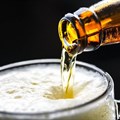The South African Breweries (SAB) is heading to court to challenge the constitutionality of the third alcohol ban, which came into effect when South Africa moved to an adjusted Level 3 lockdown on midnight, 28 December 2020.

©Dmytro Skorobogatov via
123RF"After much consideration, SAB has decided to approach the courts to challenge the constitutionality of the decision taken and process followed by the National Coronavirus Command Council (NCCC) to re-ban the sale of alcohol. This legal action is the last resort available to SAB in order to protect our employees, suppliers, customers, consumers and all the livelihoods we support," the company said in a statement.
Unlawful restriction on public rights
SAB said that while is supports all lawful measures that curb the spread of the pandemic – including an earlier curfew to limit movement, reduced indoor and outdoor capacity at gatherings, measured alcohol restrictions by channel and heightened law enforcement – it strongly disagrees with the introduction of yet another outright ban on the sale of alcohol.
"SAB believes that any ban, including the current one, goes far beyond what is reasonable and necessary to contain the spread of the virus and unlawfully restricts various rights that are enshrined and protected by our constitution. These include the right to freedom of trade, the right to human dignity, privacy, and the right to bodily and psychological integrity.
"Challenging the constitutionality of the ban, which removes the South African public’s right as adults to responsibly consume a beer safely in the privacy of their own homes, is an integral part of SAB’s action," the brewery said.
The industry made representation to the government on 28 December 2020 to consider several alternatives rather than imposing an outright nationwide ban on all formal sales of alcohol. These alternatives included: restrictions on trade channels, with taverns moving from on- to off-premise trading; and trading days and hours remaining restricted for off-premise outlets.
SAB believes that the above-proposed limitations coupled with an earlier curfew, would have been reasonable and effective in supporting the healthcare system and would help to mitigate transmission of the virus while still preserving livelihoods and keeping the economy open.
Consequences of alcohol ban
The brewery added that the damage to the South African economy and impact on the alcohol value chain arising from ban on the sale of alcohol is disproportional and unlawful.
"As seen with the last two bans, the unintended consequences of an outright ban on the sale of alcohol are dire. Over 165,000 people have already lost their jobs with a further 100,000 people moving into poverty as a result of the alcohol bans. We have seen small and large businesses severely impacted, billions of rand lost in taxes, the entrenchment of illicit trading and the looting of alcohol stores.
"Restricting the legal trade of alcohol fuels the growth of the illicit market, a fact that is widely acknowledged internationally. The illicit market is outside the regulatory reach of government, leading to devastating consequences from a health and economic perspective," SAB said.
The company said that it's vital that a balanced approach is adopted to ensure the safety of South Africans, whilst simultaneously supporting the economy, and without taking away fundamental rights protected by the constitution. It called on government to work closely with the alcohol industry to enable an earliest possible lifting of the ban on alcohol sales and in order to collaborate in finding lawful and sustainable solutions that assist in fighting the Covid-19 pandemic.







































